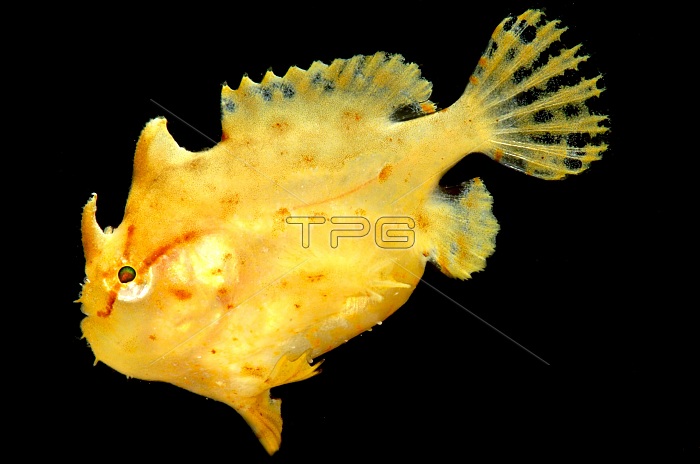
Frogfish, Antennarius sp., are some of the most cryptic predators found on tropical reefs around the world. Many frogfish have markings that blend them in perfectly with the corals, sponges, and coraline algaes comprising tropical reefs. This Sargassum Angler, Histrio histrio, lives in floating mats of Sargassum Weed in the Atlantic and Caribbean. Many frogfish species can change the color and even the cryptic patterns on their bodies depending on the substrate where they reside. The disguise hides them from potential predators and potential prey. Frogfish have a fishing pole-like structure, the illicium, that emerges from their head and can be rocked back and forth. At the end of the pole is a structure known as an esca. The esca is the equivalent of a lure, which attracts small prey by mimicking a potential food item like a shrimp or small fish. The potential prey are drawn to within striking distance of the frogfishs' cavernous mouth, which is opened rapidly, drawing in water and the prey item. Luring prey by mimicking a potential food item is also known as aggressive mimicry. It was trawled up in the Gulf of Mexico, 2015.
| px | px | dpi | = | cm | x | cm | = | MB |
Details
Creative#:
TOP22061487
Source:
達志影像
Authorization Type:
RM
Release Information:
須由TPG 完整授權
Model Release:
N/A
Property Release:
No
Right to Privacy:
No
Same folder images:

 Loading
Loading